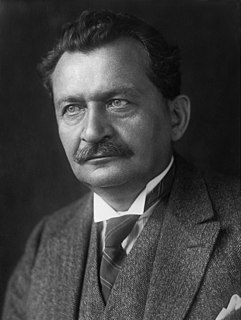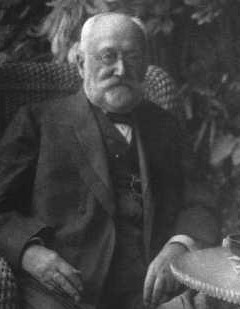The Greens of Andorra is a green political party in Andorra.

Federal elections were held in Germany on 7 December 1924, the second that year. The Reichstag had been dissolved on 20 October 1924. The Social Democratic Party remained the largest party in the Reichstag with an increased share of the vote, winning 131 of the 493 seats. Voter turnout was 78.8%.

Federal elections were held in Germany on 25 January 1907. Despite the Social Democratic Party (SPD) receiving a clear plurality of votes, they were hampered by the unequal constituency sizes that favoured rural seats. As a result, the Centre Party remained the largest party in the Reichstag after winning 105 of the 397 seats, whilst the SPD won only 43. Voter turnout was 84.7%.

Parliamentary elections were held in Iceland on 25 April 1987. The Independence Party remained the largest party in the Lower House of the Althing, winning 12 of the 42 seats.

General elections were held in Belgium on 5 April 1925. The result was a victory for the Belgian Labour Party, which won 78 of the 187 seats in the Chamber of Representatives. Voter turnout was 92.8% in the Chamber election and 92.7% in the Senate election.

Parliamentary elections were held in Norway in 1891. The result was a victory for the Liberal Party, which won 63 of the 114 seats in the Storting. The Conservative Party and the Moderate Liberal Party contested the elections in an alliance, although separate lists were used in some constituencies.
Elections to the Supreme Soviet were held in the Soviet Union on 12 March 1950.

Parliamentary elections were held in Bulgaria on 24 December 1939, although voting continued in some areas into January 1940. The elections were officially held on a non-partisan basis with the Bulgarian Agrarian National Union and Bulgarian Communist Party banned, and in a process tightly controlled by Tsar Boris III, by then the real power in the country. However, candidates representing parties did contest the elections. Pro-government candidates won a majority of seats. Voter turnout was 67.2%.
Parliamentary elections were held in Greece in June 1847. Supporters of Ioannis Kolettis won a majority of the 127 seats. However, he remained Prime Minister only until his death 17 September, after which Kitsos Tzavelas assumed office.

The 1874 Italian general election was held in Italy on 8 November, with a second round of voting on 15 November. They were a snap election, called by Prime Minister Marco Minghetti to strengthen his majority.

General elections were held in Portugal on 28 April 1918, following a coup by Sidónio Pais in December 1917. The elections were boycotted by the Democratic Party, the Evolutionist Party and the Republican Union, who had won over 90% of the seats in the 1915 elections.

Parliamentary elections were held in Portugal on 11 May 1919. The three main parties that boycotted the 1918 elections returned to contest the elections. The result was a victory for the Democratic Party, which won 86 of the 163 seats in the House of Representatives and 36 of the 71 seats in the Senate.

Parliamentary elections were held in Portugal on 30 October 1938. The country was a one-party state at the time and the National Union was the only party to contest the elections, with no opposition candidates allowed to run.

Parliamentary elections were held in Portugal on 1 November 1942. The country was a one-party state at the time and the National Union was the only party to contest the elections, with no opposition candidates allowed to run.
Folketing elections were held in Denmark on 7 June 1864. The National Liberal Party emerged as the largest faction, winning 40 of the 101 seats. Following the elections, Christian Albrecht Bluhme became Prime Minister on 7 July.

The United Labour Social Democratic Party was a political party in Bulgaria.
The Tenants' Union was a political party in Estonia.
Folketing elections were held in Denmark on 14 June 1855 in order to approve amendments to the constitution. Peter Georg Bang remained Prime Minister following the elections.
Folketing elections were held in Denmark on 14 June 1858. Carl Christian Hall remained Prime Minister following the elections.
Folketing elections were held in Denmark on 14 June 1861. Carl Christian Hall remained Prime Minister following the elections.















